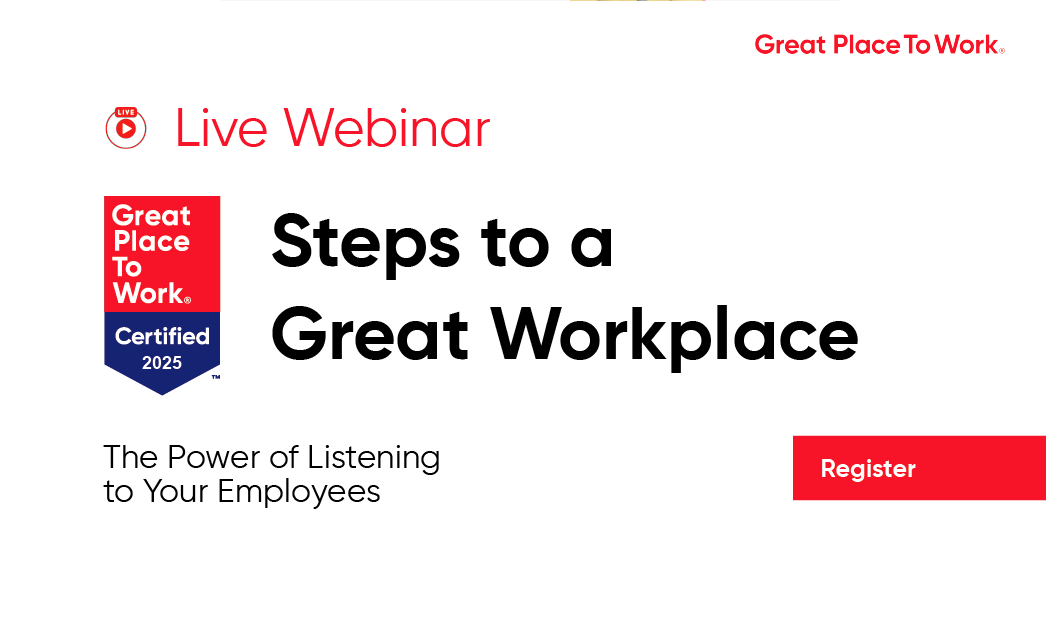Our research reveals how a culture of innovation and creating a sense of purpose at work are linked.
Over the last several years, researchers and companies have proved that a sense of purpose affects performance. It feeds peoples' desire to be part of something bigger than themselves, and inspires new inventions and better ways of doing things.
But creating purpose that connects with everyone across an entire organization is easier said than done.
Our research discovered that a barrier to innovation that trips up even well meaning organizations has to do with front-line folks experiencing much less purpose than others higher up in the company.
And if employees feel they're not sharing in the company's mission and excitement, they quickly feel excluded from innovation as well.
We see this all the time in employee comment data. Employees are much more likely to innovate if they feel they are part of something incredible. We mean that literally. Highly engaged employees used phrases like "incredibly hardworking environment," "incredible energy that is motivating" and "incredible company journey."
Unfortunately, those on the front line often don’t experience the same level of awesomeness. Employees in roles like sales associate, customer service representative and field service technician can feel left out because they're missing out on rewards due to their personal background or their position, or based on day-to-day negative experiences.
Unfair rewards, in particular, can undermine purpose and inspiration on the front lines. Consider this employee comment:
"When the rate of pay goes up and someone has been here for 8 years and a new person who has been here a year is then getting almost the same rate of pay as the person who has been working her for 8 years. That is not right.
The people who have been here much longer should also get a substantial increase to make it fair. It really burns the people who have been here a long time to know that someone brand new with not a lot of experience is making almost the same pay."
The picture here is of people whose energy is going into burning anger and resentment, rather than flashes of insight for how to move the organization forward. Perceived inequities in pay or perks, in other words, can prevent people in the trenches from tapping into the deeper purpose of the organization, and therefore dampen their creativity and commitment.
We also found that employees with certain characteristics and roles are at risk for feeling marginalized. These include long-tenured employees and remote workers.
Employees with 16-20 years of tenure are 20% less likely to have meaningful opportunities for innovation than employees at the organization for less than two years. As this statistic suggests, it’s easy for leaders to take their long-standing staffers for granted, or to give up on keeping those folks fired up.
It’s also easy to lose sight of employees who are physically out of sight. People that mention being remote or in the field are 56% more likely to feel excluded from innovation. You can hear the sense of being neglected in this employee’s comment:
"The company is growing and changing very rapidly… My hope is that management doesn't forget the fact that the field personnel that work here have a large combined amount of years of knowledge, that needs to be called upon when making decisions that affect matters in the field."
The most successful organizations overcome leader blind spots and connect everyone to the mission. And, as a result, they see innovation levels take off.
We found that when employees say their work has “special meaning,” rather than being “just a job,” they are 56% more likely to experience a lot of innovation opportunities. Similarly, when people feel they “make a difference” at work, they are 64% more likely to be engaged in high levels of innovation.
Measure and track if your employees experience purpose at work
Are your employees experiencing a sense of clarity and purpose at work? Get Certified™ with Great Place to Work and, through our research-backed Trust Index™ employee survey, learn how your company culture stacks up and how you can create more purpose.
Credit: Ed Frauenheim GPTW US


